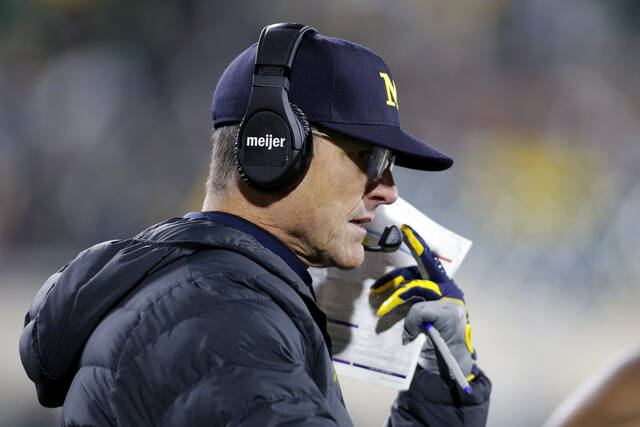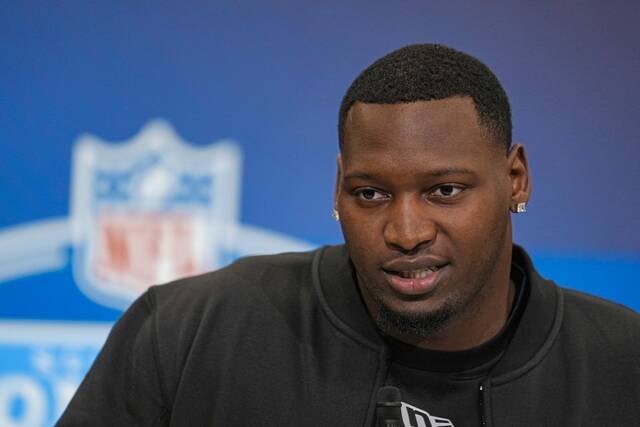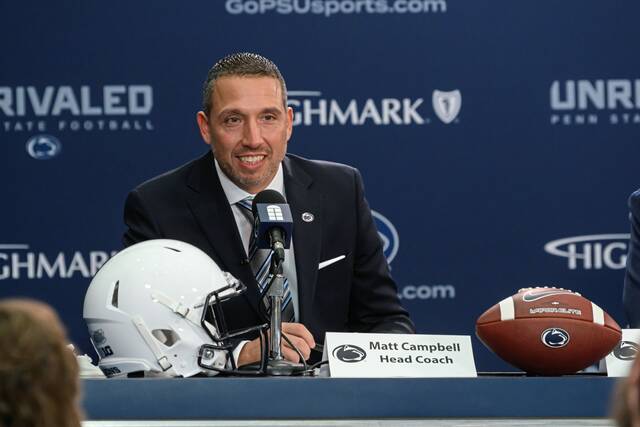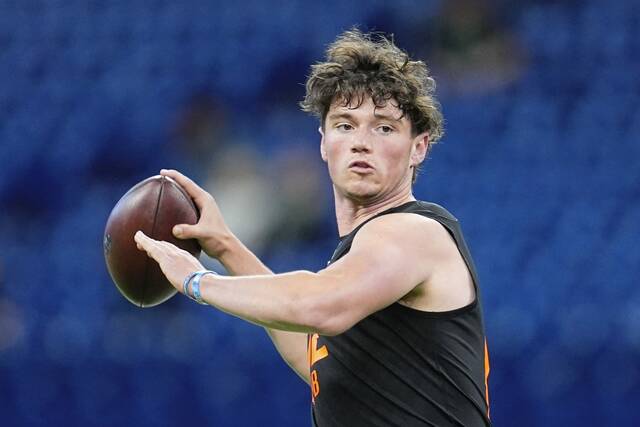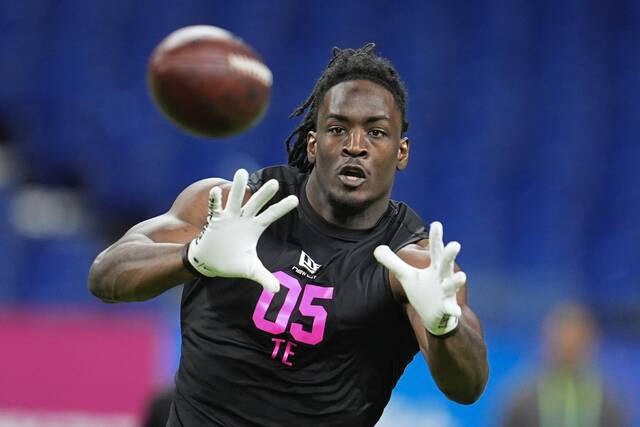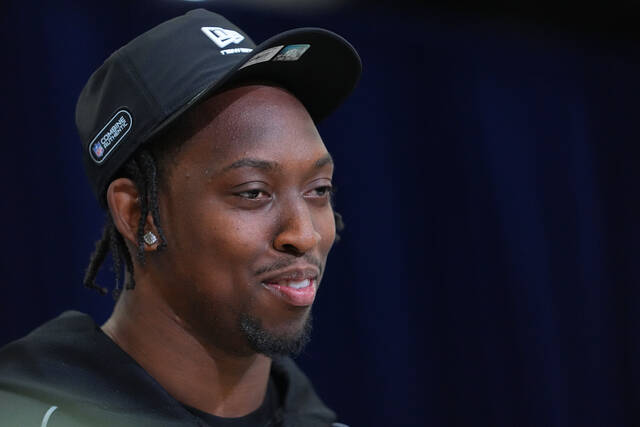Here are some of the highlights of Big Ten commissioner Tony Petitti’s 13-page letter to Michigan athletic director Warde Manuel on Friday, informing the university that the conference is suspending head football coach Jim Harbaugh for the final three games of the regular season:
• On the sign-stealing scheme:
“The goal of the scheme was to gain an unfair advantage by stealing the signs of teams that the University’s football team was due to play later in the season. Such misconduct inherently compromises the integrity of competition.”
• On Michigan’s counter-arguments:
“Notably, the university’s Nov. 8 response does not deny that the impermissible scheme occurred. Instead, it offers only procedural and technical arguments designed to delay accountability. The university also argues that because it believes that others are engaged in decoding signs, there must be nothing wrong with the University’s activities. In addition to impermissible activities of others being currently unsupported by facts, the University’s culpability is not dependent on the actions of other institutions.”
• On the evidence against Michigan:
“The existence of the impermissible scheme is proven. While other investigatory bodies continue to develop additional evidence of the scope, extent and individual knowledge of the scheme that may advise additional or enhanced penalties in the future, taking immediate action is appropriate and necessary under the conference’s sportsmanship policy. … The NCAA presented and discussed what it called a ‘master spreadsheet’ that the NCAA had received during its investigation. It included a very large amount of detailed information regarding the impermissible scheme.”
• On Connor Stalions, the alleged central figure in the scheme:
“This documentation also showed the staff member had forwarded certain tickets to a network of individuals, many of whose names matched those included in the master spreadsheet. The documents include game attendance information for forwarded and unforwarded tickets. In addition, the commissioner of the Southeastern Conference informed the conference that the university staff member had purchased tickets to the SEC football championship game in Atlanta. … He and others acting at his direction video recorded signs used by future university opponents while attending the opponents’ games in person.”
• On what Harbaugh knew:
“We impose this disciplinary action even though the Conference has not yet received any information indicating that head football coach Harbaugh was aware of the impermissible nature of the sign-stealing scheme. This is not a sanction of Coach Harbaugh. It is a sanction against the university that, under the extraordinary circumstances presented by this offensive conduct, best fits the violation because: (1) it preserves the ability of the university’s football student-athletes to continue competing; and (2) it recognizes that the head coach embodies the university for purposes of its football program.”
• On other schools allegedly stealing UM’s signs:
“The university argued that it believed it had evidence of other conference members engaging in impermissible in-person sign-stealing, and therefore urged the conference to ‘act cautiously’ — essentially an argument that violations of the sportsmanship rule should be overlooked if ‘everyone is doing it.’ … As the university readily admits in its response, it does not know the exact methods that it alleges other teams used to decode its own signs. The conference has not received any information that any other member schools engaged in impermissible advance in-person scouting, let alone a scheme of the size and scale like the one at issue here.”
• On the risks of illegal sign stealing:
“While the conference is currently not aware of any physical injuries that resulted from the impermissible scheme, numerous coaches and athletic directors from other member institutions expressed concerns to me about the increased risks of injury to student-athletes resulting from the scheme. I have a responsibility to give serious consideration to those concerns. I find it credible that impermissible advance scouting increases the risk of injury to student athletes because if you know what play your opponent is running, then you also know where your opponents’ players will be on the field.”
• On the NCAA’s investigation:
“The NCAA has also communicated to the Conference that it knows and can prove that the impermissible scheme occurred, and the evidence it has provided to the Conference and the university supports that statement.”
• On levying punishment this season:
“Numerous coaches have informed me that signs and signals cannot be quickly or easily changed, and I find those statements credible. Thus, the inherent and unfair advantage gained from the impermissible scheme may still exist, which further justifies punishment this season.”


